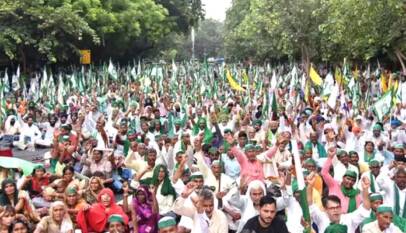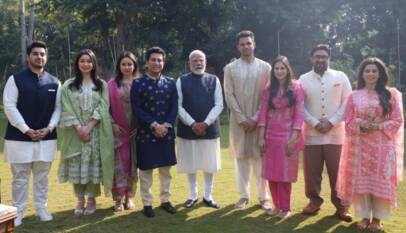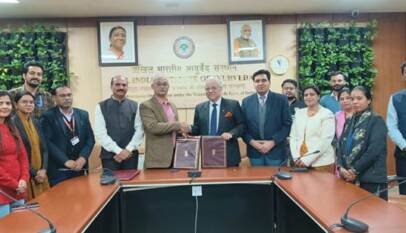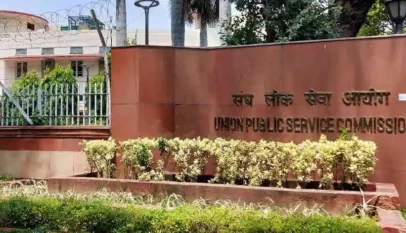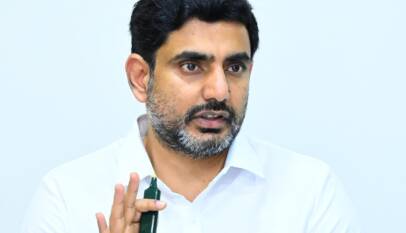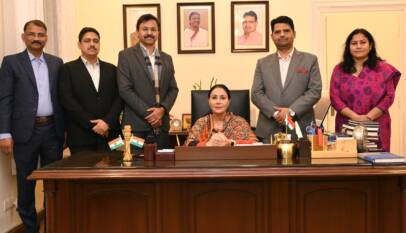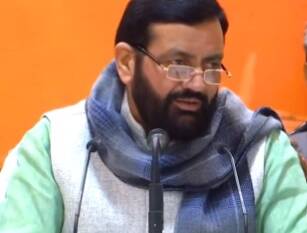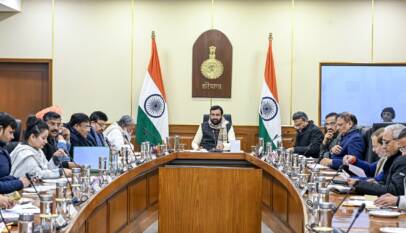Gyanvapi is not merely a structure, but a medium for acquiring knowledge and a symbol of Lord Vishwanath himself: CM Yogi
Gorakhpur : On Friday, Chief Minister and Gorakshapeethadhiswar Yogi Adityanath, while recalling an incident from Adi Shankar’s visit to Kashi for Gyan Sadhna, remarked that the Gyanvapi well in Kashi is not merely a structure but a profound medium for acquiring knowledge and a symbol of Lord Vishwanath himself.
He explained that during Adi Shankar’s visit to Kashi for Gyan Sadhna, Lord Vishwanath appeared before him in the form of an ‘untouchable chandal,’ deepening his understanding of Advaita and Brahma.
CM Yogi shared these insights during the conclusion of the Srimad Bhagwat Mahapuran Katha Gyan Yagna on the occasion of the 55th death anniversary of Yugpurush Brahmaleen Mahant Digvijaynath Ji Maharaj and the 10th death anniversary of Rashtrasant Brahmaleen Mahant Avedyanath Ji Maharaj at Gorakhnath temple.
Addressing devotees at the Digvijaynath Smriti Bhavan auditorium, he remarked, “No one can predict the form in which God will appear.” Citing the specific incident, he explained, “When the Sanyasi Adi Shankar from Kerala believed he had reached maturity in Advaita knowledge, he journeyed to Kashi, the sacred city of Lord Vishwanath, to deepen his understanding. One morning, as he headed to bathe in the Ganga, Lord Vishwanath appeared before him disguised as a Chandal, a figure traditionally considered untouchable.”
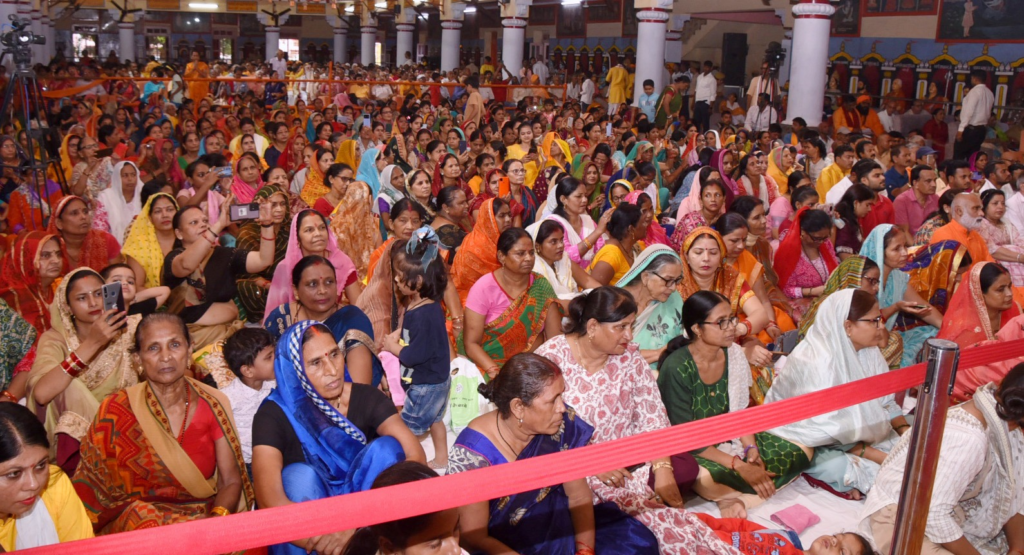
The Chief Minister continued, “When Adi Shankar requested the Chandal to step aside, the Chandal replied, ‘You claim to be a master of Advaita, which teaches that Brahma is the ultimate truth. If the Brahma within me is different from yours, then your Advaita is flawed. Do you see me as untouchable based on my appearance?’ It was then that Adi Shankar realized that the Chandal was, in fact, Lord Vishwanath, the very deity he had come to Kashi to seek.”
CM Yogi emphasized that the true essence of ‘katha’ lies not only in listening but in applying its teachings to one’s life. He explained that texts like the Shrimad Bhagwat Mahapuran and other religious stories instill a sense of pride in India’s rich tradition, heritage, culture, and history. These stories have been narrated in India for over five thousand years.
He further stated that India is inherently a religious country, with its soul rooted in religion, specifically Sanatan Dharma. The teachings of Sanatan Dharma serve as the foundation for social unity and national integration.
The Chief Minister recounted a comment made by a former leftist leader from Kerala, who also served as the Chief Minister. The leader reflected that when he joined the Communist Party, it was suggested that India was not a nation but merely a collection of regional identities. However, as he traveled from West to East and North to South, he encountered India’s rich heritage, with monasteries and temples everywhere. He learned that a monk from Kerala established four religious peeths in the country’s corners, working to unite people through a widespread campaign of religious awakening without discrimination. This experience led him to realize that monasteries and temples are not just centers of worship but also the foundation of nationalism, embodying the soul of India.
The Chief Minister noted that despite India’s historical division into princely states, it has remained a cultural unit. He asserted that if India had not been united, figures like Adi Shankaracharya would not have been able to establish peeths across the nation.
CM Yogi Adityanath emphasized that our acharyas, saints, sages, and munis, including Mahayogi Guru Gorakhnath, have played a vital role in uniting India through a shared tradition of unity. He noted, “On one hand, we had a destructive tradition, often represented by figures like Ravana, Kansa, and Duryodhana. On the other hand, there existed a tradition of sages and munis, imbued with divine power, alongside the practice of religious pilgrimages.”
He highlighted the unique custom that connects different regions of India, stating that a person from the North might take water from Gangotri to offer at Rameswaram, while someone from Rameswaram travels to Kedarnath for Jalabhishek. This mutual exchange reflects the deep cultural and spiritual ties that bind the country together.
Chief Minister Yogi Adityanath stated that the Shrimad Bhagwat Mahapuran and similar ‘kathas’ inspire us to understand life and guide us on our path forward. For five thousand years, these stories have illuminated the way to salvation for millions. He emphasized that the organization of these kathas is done with heartfelt emotion to honor the memories of our ancestors and acharyas.
The Chief Minister also expressed his gratitude to Katha Vyas Kashipeethadhiswar Dr. Ram Kamal Vedanti Ji, who traveled directly from America to Gorakhpur to narrate the story of the Shrimad Bhagwat Mahapuran. In the break session of the story, CM Yogi also released the book of Prof. CB Singh, the outgoing Acharya of the Department of Political Science of Deendayal Upadhyay Gorakhpur University.
During the Katha, Chief Minister Yogi Adityanath arrived at the venue to worship the Vyas Peetha and performed the Aarti following the conclusion of the event. For seven days, devotees experienced the Shrimad Bhagwat Katha at the Gorakhnath temple, delivered by Katha Vyas Jagadguru Anantanand Dwaracharya Kashipeethadhiswar Swami Dr. Ram Kamal Das Vedanti Ji, who traveled from Shri Ram Temple Gurudham Kashi.
In attendance were prominent figures, including the chief priest of Gorakhnath temple, Yogi Kamalnath, Mahant Narayan Giri, Swami Vidya Chaitanya, Mahant Dharmadas, Ram Dinesh Acharya, along with numerous saints, patrons, and a large gathering of devotees.
Andhra Pradesh Releases ₹1,200 Crore to Clear Scholarship and Fee Reimbursement Dues, Boosting Higher Education
In a major step to strengthen higher education and ease financial pressure on students, th…


